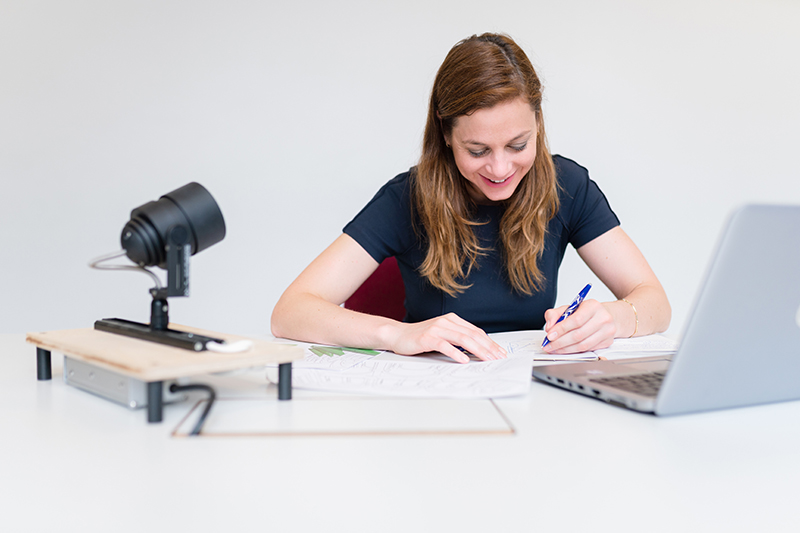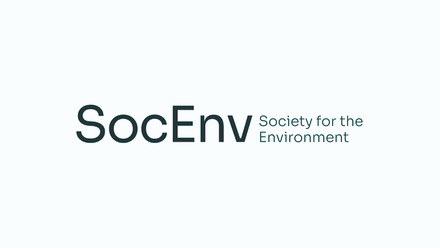On record - keeping a skills log
How can you pinpoint the valuable professional skills and experience being honed?

Faith Nightingale, Affiliate Member of IOM3 and Lecturer in Skills for Science and Engineering Transnational Education at Queen Mary University of London, UK, extolls the benefits of keeping a logbook to enhance future career prospects.
Have you ever written a personal statement when applying for a job or a place on a university course to sell yourself? Have you ever struggled in recalling your achievements or projects that demonstrate your professional skills? Have you ever undersold your abilities?
If you have answered yes to any of these questions, then an engineering logbook can help you. It is a common trait for people to undersell themselves, purely because they have forgotten what they have achieved.
As a graduate, it is extremely important to be able to show your development through university, identifying the professional skills you have acquired and the projects that you have taken part in, especially if you have little work experience.
Often graduates feel they do not have the skills and all important experience that is required in the workplace, but this is not true.
At university, there are plenty of opportunities to develop key employability skills, but these are often overlooked or dismissed, and definitely not recorded. Keeping a record of professional development is something that everyone should do – starting at university.
Logging it in
At Queen Mary Engineering School (QMES), China, student engineers start recording their professional development from year one, semester one through an engineering logbook.
This can be used whenever you identify an opportunity for professional development. It is also used to protect your intellectual property, which is important especially in lab work and when developing other ideas.
If developed correctly, an engineering logbook can be your ticket to selling yourself as the best, most accurate version of you and will help you progress to employment, further study or professional registration.
To apply for professional registration such as IEng or CEng, the UK-SPEC E4 (professional commitment) says you must be able to show a record of professional development. Having an engineering logbook is your evidence of this. It can also be used to evidence the other aspects of the UK-SPEC, which will boost your application.
From scratch
So how do you start an engineering logbook? There are four simple steps to follow.
First, decide if you want to keep a hard or soft copy – thinking sustainably, a soft copy is probably your best option.
Secondly, identifying what is an opportunity for professional development is key. Training (where there is a formal outcome), attending a conference, or giving a presentation can be included.
At QMES there are currently 11 different engineering logbook forms that cover a range of opportunities for professional development:
- Training
- Attending a presentation/lecture
- Attending a conference
- Giving a presentation
- Lab experiments
- Volunteering
- Work experience
- Attending a winter/summer school
- Participating in a competition
- Student representative
- Writing an article/report
Each of these represent professional/employability skills that are required within the workplace. They provide opportunities to develop transferable skills in communication, presenting and teamwork. Additionally, opportunities such as volunteering or work experience can develop your negotiation, customer service and project management skills – all vital for an engineer. Attending a summer or winter school means students can interact with a diverse group of people as well as developing knowledge.
Once you have identified an opportunity for professional development, the third step is writing about it. When writing any entry, you should include three main areas – details about the entry (time, date, title, people involved, etc.), the learning objectives and main points, and a reflection.
Then, depending on the entry, you can develop it further to make it specific to the topic.
On reflection
Reflecting is a key skill to help personal development and is an important part of the process.
Reflections offer the opportunity to analyse your work, evaluate your strengths and weaknesses, and come up with an action plan to develop yourself (D3 UK-SPEC). When writing your reflection, consider the following questions:
- What went well?
- What did not go well?
- What skills have I developed, or do I need to develop?
- What will I continue to do next time?
- What do I need to improve on next time and what is my action plan?
An action plan is vital as it gives you the opportunity to set yourself measurable goals (SMART goals). This can be through development in the next project or taking time to sit and reflect on your progress annually.
Get organised
Finally, the fourth step in creating an engineering logbook is organisation. Your logbook should be organised by topic and then in chronological order.
You also need to ensure you have a contents page and that all your pages are numbered. The easiest thing to do is start each topic area at one and then continue. This way, when you add something to the previous topic area, you do not have to change all the following page numbers.
Making a commitment
Through creating an engineering logbook, the essential skill of lifelong learning is developed.
Lifelong learning is important for everyone as it aids development throughout your career, whether it is through further formal qualifications and training, retraining or continuing professional development (CPD).
Passion for lifelong learning means once you have a qualification, it does not mean that learning has finished, or you know everything – in fact, it is just the beginning.
With the fast-paced development of technology and Industry 4.0, it is more important than ever that engineers mantain a passion for lifelong learning, as, without it, you quickly become unemployable.
Curriculum development
Universities are focused on graduate attributes and preparing students for employment. An engineering logbook can be an excellent way to help recognise achievements and prepare engineering students.
Engineering logbooks could be incorporated into degree programmes as an essential component. At QMES, they are central to the professional skills/personal development modules that run for three years. Engineering students start populating their logbooks in year one and submit them as an assessed piece of work in year three.
Students are reminded when CPD occurs, for example, in a guest lecture. This is particularly important in the first year as students are developing their skills and getting used to university study and so may not be fully aware of an opportunity.
Additionally, students complete an engineering logbook work record form at the end of a semester at QMES, which is submitted as a formative piece of work.
The work record form consists of the key entries highlighted in class that must be included in the logbook and a box where students can write any additional entries they have included. Students then receive feedback on their logbook in a simple rubric form. This helps students to understand what they have done and what they need to improve on for the next semester, so that they are able to achieve the learning objectives.
Student feedback
The logbook has been integrated into the QMES curriculum for the past four years. Students have described it as ‘useful and meaningful work’ and an ‘effective study process’. In addition, students have given feedback specifically on the aspects of reflection, self-improvement and accomplishment.
One student said, ‘reflection is necessary to change myself,’ and this was further exemplified by another student saying, ‘the biggest influence in the logbook is that I gradually got used to implementing reflection into my study life… Mastering reflection is a gradual process, but without it, my ability would certainly not improve’.
In terms of growth and accomplishment, one student said, ‘the logbook also records what I have done in the university and gives me a sense of accomplishment. When I collected all my logbook entries and made the integration, I was astonished about how many things I had done. After participating in these various tasks and activities, I witnessed the improvement of my comprehensive ability.’
Another said, ‘When I looked through my 67 logbook entries today, I found that it has been a record of my QMES experience and witnessed my growth and changes during my university years.’
This has helped in interview preparation. ‘Recently, I was preparing for some application interviews, whenever I forgot some important information, like experiments I had completed or which conferences I had attended, I would first turn to the logbook, which would give me ideas.’
Of course, when starting a logbook, students commented that it ‘seemed boring at first’ or ‘just a task I had to do’.
However, once they got used to writing in it, it was commented that ‘I gradually found the logbook useful. I used it more seriously and entered a process of positive feedback’.
Finally, having become used to the process, students have said they will continue using the logbook throughout their career as ‘I believe it will bring me better improvement’ and ‘it is the foundation for me to grow as an engineer’.







